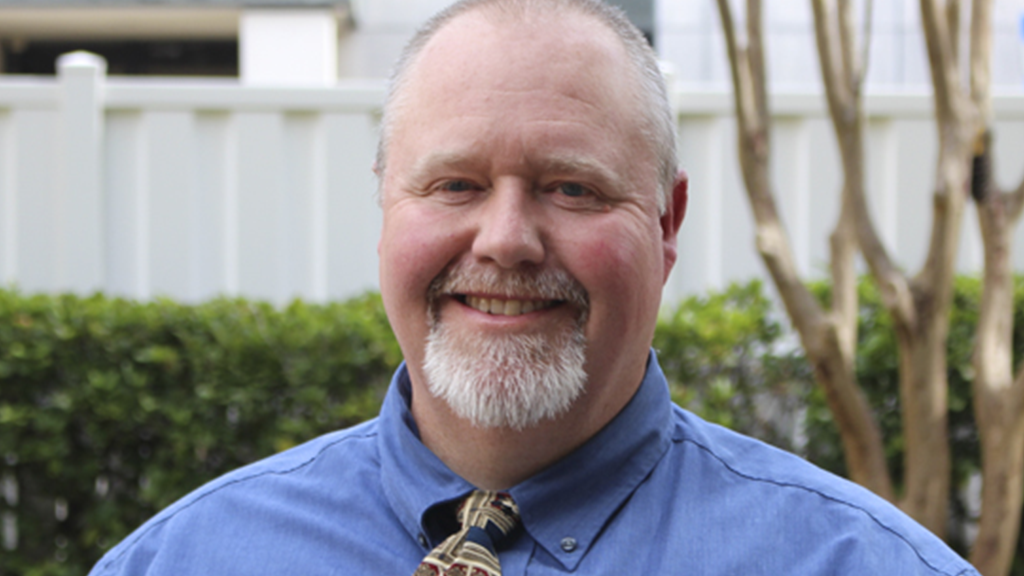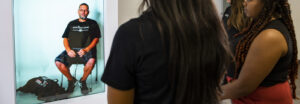Q&A: APTA Board of Directors Member Bob Rowe

Back to physical health resource hub
Bob Rowe, Director of the Brooks Rehabilitation Institute of Higher Learning, is a huge proponent of education.
Bob has spent over 30 years working to improve patient care by focusing on the post-professional education of clinicians. Bob is a well-known figure in the Physical Therapy world for his academic vision, experience, service, and leadership. The culmination of Bob’s accomplishments is his recent election to the American Physical Therapy Association’s Board of Directors.
We sat down with Bob to discuss his new role with the APTA and the current state of the Physical Therapy Industry.
- What made you originally want to be a PT?
“I injured my knee in high school playing football as an offensive lineman. One day I went down and dislocated my knee-cap, and I ended up having to go to therapy.
So that was my first understanding of what physical therapy was. I knew friends on my team who had gone to physical therapy, but I had no idea what it was. And when I went to therapy myself it was just an epiphany. It was an eye opening experience. I thought, ‘This is amazing, and these people do unbelievable things. They help people. They’re smart. They’re doing really great stuff.’ And I just thought that’s something that I want to do.”
- How has the industry changed since you first started?
“It’s changed a lot. It’s moved from being a very technician/technical oriented field to being a true professional field.
There’s a robust body of knowledge that exists within physical therapy now. We’re self-directed. We self-govern. We have the ability to be the portal to the healthcare system for patients with neuromuscular skeletal injuries, whereas 30 years ago we didn’t have the ability to do that.”
- You are regarded as an industry expert. What value does physical therapy add to the medical community?
“What we do within the medical community is something that nobody else does. We’re the movement experts.
People have some kind of impairment, some kind of condition, some kind of illness; and at the end of the day it prevents them from moving. That’s what we do; we’re the movement experts. We’re experts at determining the cause, identifying the underlying condition, and developing a management program to make that person’s condition improve and get better.”
- What issues will you be looking to address in your new role?
“The unwarranted practice variance (differences in style of care among physicians) is a critical issue for us right now. I feel like we need to reduce that. We essentially have a 14-lane highway, and we need to shrink it down to about 3 lanes. There should be some variance in practice because we don’t know the answers right now, and people need to have the freedom for individual patients and people that need to do things in specific ways for a patient. So there should be some normal variance, but right now we have a lot of variance. So, we really need to shrink that down.
It’s grown over the last few years, because the body of knowledge has expanded significantly. It quadruples every five years. So, as people graduate they’re learning new information, and coming out and practice, and people choose to keep up and become lifelong learners. Versus other people who graduate… and they don’t have that drive or passion to become lifelong learners, and they’re still practicing 30 years later the way that they practiced when they first graduated.
The reason that’s so important is because it would help so many different things. It wouldn’t just help one little problem. It would help many of the problems that we have as professionals right now.”
- What impact do you hope to have ?
“As a member of the board you’re really working with 14 other people to make lots of things happen. So, to say that I have the ability to make any one thing happen would be challenging. I can have my agenda, I can have my wish list of things, but you’re really working collaboratively with a team and trying to bring those 15 people together. We’re working in conjunction with the house of delegates and the activities that they’re directing to happen relative to the profession of physical therapy. So, it would be hard to say that I have one single item that I’m really going to push hard.”
- You are a big advocate for education. Can you talk about the programs you’ve set up at Brooks?
“The residency and fellowship programs that we have at Brooks, I think, are part of the answer to practice variance. Because when people graduate from PT school it’s a generalist education. People graduate, and they learn how to do the whole spectrum of PT with fairly high breadth, but minimum depth. The problem is they go in after they graduate and go in to specialty areas of practice.
So, they go into neurological physical therapy or women’s health physical therapy, pediatric physical therapy orthopedic physical therapy, and so on. And, they’re going into these specialty areas with a generalist’s knowledge, and it doesn’t set them up for success.
The residency programs provide them with the knowledge, skills, and confidence that they need to go into those specialty areas of practice. So they can really perform at the level that we would want to receive if it was us or one of our family members. We want people to get that level of care, and that’s what the residency gives to those individuals. And somebody can go to ten different physical therapists, and the care that they are going to receive is pretty much the same across those ten people.
- How would you like to see the industry move forward?
There are so many bad consequences of that unwarranted practice variance. So I’d really like to see us shrink that variance down, so that we can provide really great care.
The other component to that, which is independent but still interdependent, is the goal of being recognized by all of the other groups in society. Meaning payers, consumers, other healthcare providers, legislators, and regulators. Physical Therapy needs to be recognized as a portal to the healthcare system.
And that’s a very important goal that I would like to see happen, and something that I’ve been working towards for many many years, and I’m going to continue pushing that. I think it’s achievable in the next 5 to 8 years if we worked hard at it, if we did the right things, and we utilized our resources strategically. We’re moving in the right direction, but there’s opportunities to speed it up exponentially. It’s really a choice of the profession of where we want to go.”
For more information about the Brooks Institute of Higher Learning Click Here.


